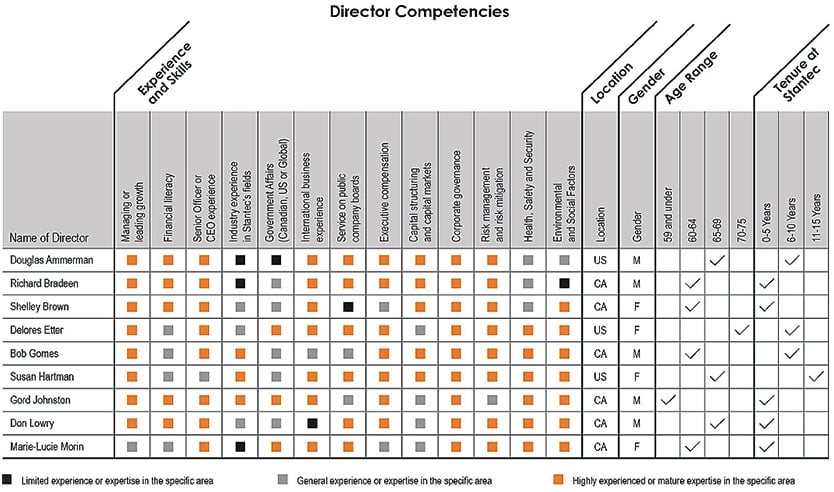Everyone Needs a Boss
Like it or not.
Certainly one of the alluring aspects of business ownership is freedom from the capricious whims of a "boss." The flexibility of making decisions and managing according to one's own priorities and preferences is appealing.
It's also common for fledgling businesses to run without outside supervision. Frequently partners provide checks on each other along with complimentary perspectives. Equity funding often brings some early outside investor oversight and guidance.
As companies grow and mature, though, they face different challenges. Often the market conditions which were intuitively understood by the founder (often someone who saw their previous employer foundering and missing key market changes) evolve - and the new conditions call for additional skills and insights to navigate optimally.
Makes sense intellectually.
But remember that founders are those incredibly arrogant types who insist that they're different; that the odds of business failure only apply to everyone else, and that they will prevail. And for existing middle-market businesses the proof is in the pudding. They've survived - they'll keep doing what got them here.
That arrogance - call it confidence, passion, vision or whatever you want - leads them to discount other views. Often they're right. Naysayers really, simply, don't get it.
Not infrequently, though, they're wrong, but don't want to be held accountable. They just don't want a boss.
"Sure, a lack of requirements suggests a degree of freedom, but I continue to be astounded by the many private companies—some quite large—whose owners choose not to be accountable to anyone and certainly not to an independent board." G. Bradford Bulkley via NACD
Blind Spots, Risks, Opportunity Cost
But what if......
What if that confident founder was willing to be accountable to a boss? To a board including independent directors with skills in finance, legal, manufacturing marketing, industrial sales channels appropriate to the business, technology, and business trends?
The business' overall strategy and prioritization of projects and allocation of resources would all be richer.
That rarely happens.
Instead there are three common approaches.
- no board - simple. no accountability
- buddy board - friends, folks from the same generation, industry, and mindset who inherently just agree
- family board - conflicts between strategy (growth vs. lifestyle) which aren't resolved and mean that the business stagnates
All three miss important opportunities.
But worse, they often actually enable mediocrity. How? It's possible for a CEO to create a bubble by preemptively floating carefully framed ideas to ensure that the board discounts them. That way they can be comfortable that they're being visionary AND responsive to a sage board - without ever stepping outside their comfort zone.
The Alternative - Build a Power Board
Let's assume that strong CEOs want to be challenged and held accountable. Given that, the solution is to explicitly and deliberately create a power board that positions a company well ahead of its more mature peers and larger competitors as well as nascent competition.
A board of directors skills matrix is a tool that forces disciplined thought and analysis.
The tool itself is pretty simple. This example below comes from an SEC submission by Stantec, Inc. While the example is from a public company, there's no reason that a privately held industrial manufacturing company can't do the same....in fact, there are many reasons why they should!
Behind the tool, though, is the important thinking and hard work that creates the value.
A board should provide expertise in various areas. Examples for a typical middle-market capital equipment manufacturer might include (not necessarily in order of importance):
- legal (particularly relevant - e.g. IP, international, employment, franchise, etc. depending on the company's business focus)
- finance - not just a friendly controller, but someone who understands finance as a strategic business driver and challenges assumptions (e.g. subscription & recurring revenue to replace/compliment traditional capital equipment progress payments)
- transactions - every company should always be shopping for acquisitions and willing to entertain offers
- domain experience - e.g. food industry for companies that build machinery for that space (ideally close to the customers' customers - e.g. food service, retail, etc.)
- digital revenue growth - marketing, sales, PR, etc.
- international / global
- manufacturing trends - 3D printing, materials, IIoT experts
- sales channel - ecommerce, indirect distribution, franchising, licensing, etc. as appropriate
- HR - often talent management in privately held companies is immature
- stage in growth - as companies grow the management burdens and strategy evolve. Some directors should have experience in the next stage.
- cybersecurity - hugely important, but not for hobbyists and typical IT directors. This requires savvy business experts.
- data and the cloud - someone with experience and vision to monetize data that's harvested as a byproduct of business.
By definition this set of board skills would definitely challenge the senior executive team who often are home grown and come from finance, engineering and sales backgrounds.
Build the Map - Then Follow It
Prospective independent directors who would start to fill these gaps (and ideally they'll bring several skills in a package of one great contributor) are likely not part of the friends and acquaintance orbit of the CEO. That means that once the matrix is developed, the next step is proactive research to identify, engage and potentially recruit directors.
There are certainly firms that provide this service, but with a well planned skills matrix and director profile many firms can gradually work on this themselves.
And Prepare for Pushback, Pain, And Success
This isn't an easy transition. The role of a private company board is often challenging to the comfortable status-quo.
If the long-time family friend VP of Sales won't get on board with the plan, they have to go.
If the most controversial annual meeting decision is how large the distribution should be, there will be much more challenging business strategy conversations (and probably smaller distributions) going forward.
Accountability isn't fun. It can be satisfying for sure. But it's a big change. A change that's often difficult for CEOs, long-time senior execs and family/friends.
There's nothing wrong with running a lifestyle business. Just recognize it for what it is.
If your aspirations are bigger, then consider the role of independent private company directors, and an active and strategic board.
Ed Marsh serves as an independent director and brings various of the skills mentioned above. If you're interested in chatting with him about how a board might benefit your company, he'd love to chat.
Interested in examples of strategic questions a board should have been asking your business for the past several years? Check out this strategy roadmap.




